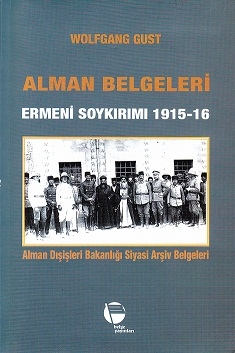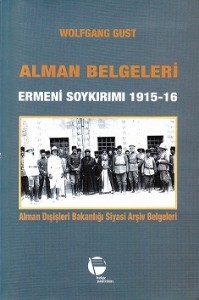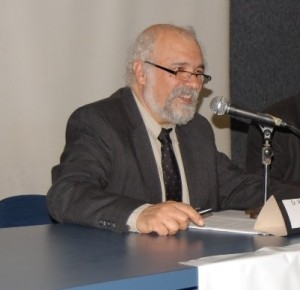TORONTO — Ragip Zarakolu, a publisher in Istanbul and a renowned champion of human rights, has collaborated with the Zoryan Institute to lay one more building block on the foundation of a common body of knowledge for Turks and Armenians. Zarakolu, despite being in jail since October 2011 allegedly in connection with the Kurdistan Communities Union (KCK) trials, has not stopped his efforts to bring out the historical truth about the “events of 1915” and thereafter.
On January 12, 2012, Belge Yayinlari, Zarakolu’s publishing house, released “Alman Belgeleri Ermeni Soykimi 1915-16: Alman Dsisleri Bakanligi Siaysi Arsiv Belgeleri”, the Turkish edition of The Armenian Genocide 1915-16: Documents from the Political Archives of the German Foreign Office, compiled and edited by Wolfgang Gust and published originally in Germany. The original book was the product of some ten years of devoted research, editing and translating overseen by Wolfgang and Sigrid Gust. It is an extensive selection of some 218 telegrams, letters and reports from German consular officials in the Ottoman Empire to the Foreign Office in Berlin describing the unfolding genocide of the Armenians.
In December 1915, as a response to the criticism and outrage of German officials in the field over the inhuman treatment of the Armenians, German Chancellor and Foreign Minister Theobald von Bethmann Hollweg wrote this: “The proposed public reprimand of an ally in the course of a war would be an act which is unprecedented in history. Our only aim is to keep Turkey on our side until the end of the war, no matter whether as a result Armenians do perish or not.” Imperial Germany was the political and military ally of the Ottoman Empire. The candor in these documents was possible because they were marked “confidential,” “very confidential,” or “secret” and “very secret,” being intended only for in-house use and never for public consumption. During World War I, only German diplomats and military officials could enter areas in which the genocide took place relatively unhindered and were able to send uncensored reports out of the country. Apart from the Americans, who remained neutral in the war until April 6, 1917, German diplomats and their informants from the charitable missions or from among the employees of the Baghdad Railway were the most important non-Armenian eyewitnesses of the Genocide.
It is ironic to read the report of February 24, 1913, from Ambassador in Constantinople (Wangenheim) to the Imperial Chancellor (Bethmann-Hollweg) stating, “Here in Germany, we have become accustomed to viewing the periodically repeated Armenian massacres as being merely a natural reaction to the Armenian businessmen’s system of draining others dry. The Armenians were called the Jews of the Orient, and people forgot that in Anatolia there is also a strong tribe of Armenian farmers which has all the good characteristics of a healthy rural population and whose entire wrongdoing consists of doggedly defending its religion, its language and its property against the foreign peoples surrounding it.”
This new book is part of the long-term project, “Creating a Common Body of Knowledge.” There is a need in Turkey at this time for authoritative information on its suppressed history. The Zoryan Institute seeks to help provide information to fill this need through systematic scholarly research, the publication of incontestable information on the Armenian Genocide in Turkish and other languages, and the distribution of it widely in Turkey and other countries. Other documentary and analytical publications commissioned by the Zoryan Institute as part of the “Common Body of Knowledge” include Hitler and the Armenian Genocide (Belge Publishers) and Judgment at Istanbul (Bilgi University Press).
The translation into Turkish and publication of the German documents was very challenging and took seven years. Dealing with the diplomatic German language and Sütterlin script of the World War I era was particularly difficult, and the text of the forthcoming English language edition was helpful in clarifying many passages.
Ragip Zarakolu has been persecuted by the Turkish state for many years for his public positions on freedom of speech, human rights, and the rights of Turkey’s minorities.
[email protected]












